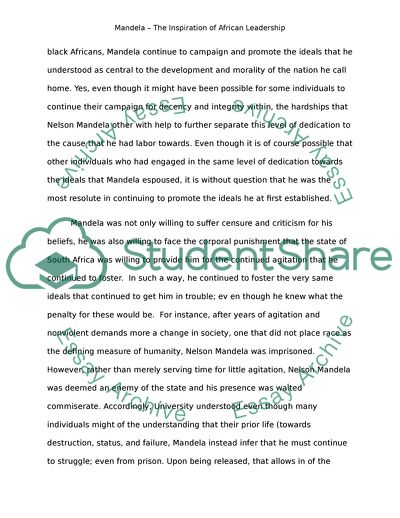Cite this document
(The Inspiration of African Leadership Case Study Example | Topics and Well Written Essays - 1250 words - 2, n.d.)
The Inspiration of African Leadership Case Study Example | Topics and Well Written Essays - 1250 words - 2. https://studentshare.org/politics/1827866-nelson-mandela
The Inspiration of African Leadership Case Study Example | Topics and Well Written Essays - 1250 words - 2. https://studentshare.org/politics/1827866-nelson-mandela
(The Inspiration of African Leadership Case Study Example | Topics and Well Written Essays - 1250 Words - 2)
The Inspiration of African Leadership Case Study Example | Topics and Well Written Essays - 1250 Words - 2. https://studentshare.org/politics/1827866-nelson-mandela.
The Inspiration of African Leadership Case Study Example | Topics and Well Written Essays - 1250 Words - 2. https://studentshare.org/politics/1827866-nelson-mandela.
“The Inspiration of African Leadership Case Study Example | Topics and Well Written Essays - 1250 Words - 2”. https://studentshare.org/politics/1827866-nelson-mandela.


